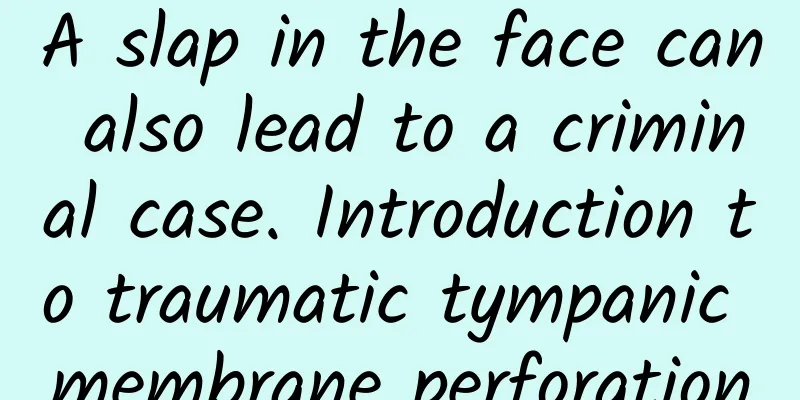Don’t do cardiac angiography casually! Be aware of these hazards! In what situations can you not do angiography

|
A patient complained to his doctor: "The heart stent surgery that was originally scheduled was postponed for a week because of the fever! What's the reason? Is it necessary?" This is a 60-year-old lady who was hospitalized because of repeated angina pectoris after activities. Coronary CTA showed severe stenosis of multiple blood vessels. The doctor recommended cardiac angiography and stent implantation if necessary. After admission, all preparations were in place and she was waiting for surgery. However, the flu was prevalent in recent days. The patient was "infected" the night before the surgery, with a body temperature of up to 38.5℃! Although symptomatic treatment was given, she still had a high fever the next day. The doctor asked to postpone the surgery, but the patient was very confused: "Is there any connection between influenza and angiography? Why can't we do it?" The doctor explained: Cardiac angiography cannot be done casually, otherwise it will cause new harm! Be careful when doing angiography in the following situations: 1. Cardiorenal insufficiency Contrast agents are used for cardiovascular imaging during surgery. When large amounts of these contrast agents enter the human body in a short period of time, they will increase the burden on the heart, aggravate the condition of patients with heart failure, and even induce acute heart failure! In addition, contrast agents have certain renal toxicity. Patients with renal insufficiency may have difficulty in excreting contrast agents, which may stay in the kidneys for too long, aggravating renal insufficiency. Although most renal damage is transient and reversible, severe cases may cause persistent renal failure and even require dialysis treatment. 2. Infection and Fever Although cardiac angiography is minimally invasive, it still involves surgical trauma, which may aggravate the inflammatory response and worsen the infection and fever. More importantly, angiography exposes the body to radiation, which may inhibit cell division and proliferation, reduce immune function, and further aggravate cold symptoms, making it difficult to recover. 3. Contrast agent allergy and hyperthyroidism Contrast agents are synthetic iodine. Cardiac angiography is not recommended for patients who are allergic to iodine. In severe cases, it may even cause anaphylactic shock and endanger life. In addition, the iodine in the contrast agent will aggravate hyperthyroidism, so patients with uncontrolled hyperthyroidism cannot undergo cardiac angiography. 4. High risk of bleeding Heparin is used for anticoagulation during cardiac angiography, and if a stent is implanted, aspirin and other antiplatelet drugs are also taken for a long time. These are all high-intensity "blood-activating drugs." If the patient has combined trauma, cerebrovascular or gastrointestinal bleeding, and other coagulation disorders, there is a risk of worsening bleeding. I am Dr. Zhang from the Department of Cardiology. If you like my popular science articles, please like them! You can also share them with friends in need! Follow me to see more health knowledge about heart disease! |
<<: Does myopia surgery have a “shelf life”?
>>: It’s getting colder, so why are there more people suffering from “anger”?
Recommend
Treatment for vaginal itching during pregnancy
Maybe we all don’t have a clear understanding of ...
Can I eat peaches when I am pregnant?
Peaches have the effect of activating blood circu...
Is it normal for the milk supply to suddenly decrease at 7 months?
Everyone knows the benefits of breast milk for ba...
What are the dangers of amenorrhea in women
Amenorrhea in women has a great impact on physica...
What should I do if I am afraid of cold and wind after giving birth?
If postpartum care is not in place, the mother wi...
What should be the sleeping position during the third trimester of pregnancy?
Expectant mothers who are three months pregnant s...
Implantation was successful on the fourth day of ovulation
Successful implantation on the fourth day of ovul...
How to clear fallopian tube adhesions?
Some female patients have problems with their fal...
What to do if you have severe abdominal pain during menstruation
Abdominal pain during menstruation is menstrual c...
What are the disadvantages of girls masturbating frequently?
Frequent masturbation will have an impact on your...
How to treat excessive leucorrhea?
In life, many women have more or less the problem...
Science Time/How to Sleep Scientifically
Daily Science | How to sleep scientifically? Know...
Can rabies really kill people?
This is the 3450th article of Da Yi Xiao Hu Nowad...
What if I have my period twice a month?
Many women feel very uncomfortable because they h...









